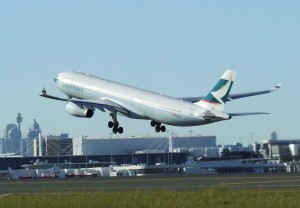
The industrial row hitting travellers at Australian airports has escalated further after the Community and Public Sector Union accused the nation’s biosecurity authorities of standing down quarantine staff for a whole day for imposing two hour go-slow tactics that force far more passengers to be screened than usual.
The CPSU claims that the Department of Agriculture and Water Resources (DAWR) has threatened that it will dock biosecurity staff a whole day’s pay for imposing so-called ‘overscreening bans’ that result in potentially long delays as officers check almost every incoming passenger rather than a selected sample and those looking suspicious.
The stand downs are an all-or-nothing gamble for the government because stood down workers not being paid could potentially just walk off the job rather than confining their actions to a go-slow.
A spokesperson for DAWR told Government News that “high employee participation in rolling partial work bans and the extended period of coverage of this action has the potential to adversely impact biosecurity outcomes, given the limited capacity of the department to inspect a significantly increased number of passengers referred for intervention.”
“The department gave notice on 31 March that any staff participating in partial work bans would not be entitled to payment on the day of this action,” the DAWR spokesperson said, adding that the decison “is consistent with definitions and provisions under s471(4)(c) of the Fair Work Act 2009.”
The anticipated bans and the airports they hit are listed on the DAWR website.
The latest airport turbulence follows separate action by the Department of Immigration and Border Protection to try and halt airport strikes by Border Force officers on the grounds they could potentially impact national security.
On Monday the CPSU won a tactical victory in the airports dispute with DIPB after it successfully sought more time from the Fair Work Commission to put together its case to fight a three month suspension of industrial action in the interests of national security.
The move by Immigration and Border Protection to seek a restraint on the industrial action using national security as a trigger represents a new low in the two-year long dispute as employers effectively accuse officers of being prepared to endanger public safety to secure a pay outcome.
The CPSU has argued that a range of national security exemptions already apply to any protected industrial action it takes to prevent security lapses, a position government negotiators won’t accept.
The fresh crackdown on DAWR on bans by frontline airport biosecurity officers has been received by the CPSU as deliberate escalation by the government to try and financially punish staff taking action with effective penalties that are far higher than the value of the labour withdrawn.
Even so, the CPSU has told its members to hold-off imposing the bans “while the situation is assessed.”
“The Agriculture Department is falsely claiming the industrial action has the potential to compromise quarantine and biosecurity at airports, despite the fact the bans involve screening more incoming passengers than normal and intercepting more prohibited items,” the CPSU said in a statement.
“The decision has added further insult to injury for CPSU members, as the Department of Agriculture and the Department of Immigration and Border Protection (DIBP) continue to antagonise and mistreat staff, while the Government sits back and does nothing to find a fair resolution to the two-year fight over rights, conditions and real wages.”
Meanwhile, the wider public service dispute is threatening to spill over into the anticipated federal election campaign, with the Australian Public Service Commission yet to tell departments and agencies whether or not they can finalise enterprise agreements during the caretaker period.
Comment below to have your say on this story.
If you have a news story or tip-off, get in touch at editorial@governmentnews.com.au.
Sign up to the Government News newsletter
Most read
Scathing report finds little has changed at PwC
Qld council welcomes progress on massive battery system
Inquiry to consider how federal govt can address councils’ sustainability issues
‘Local’ procurement turns out not to be so local, committee hears
Another report finds local government falling down on cyber security
